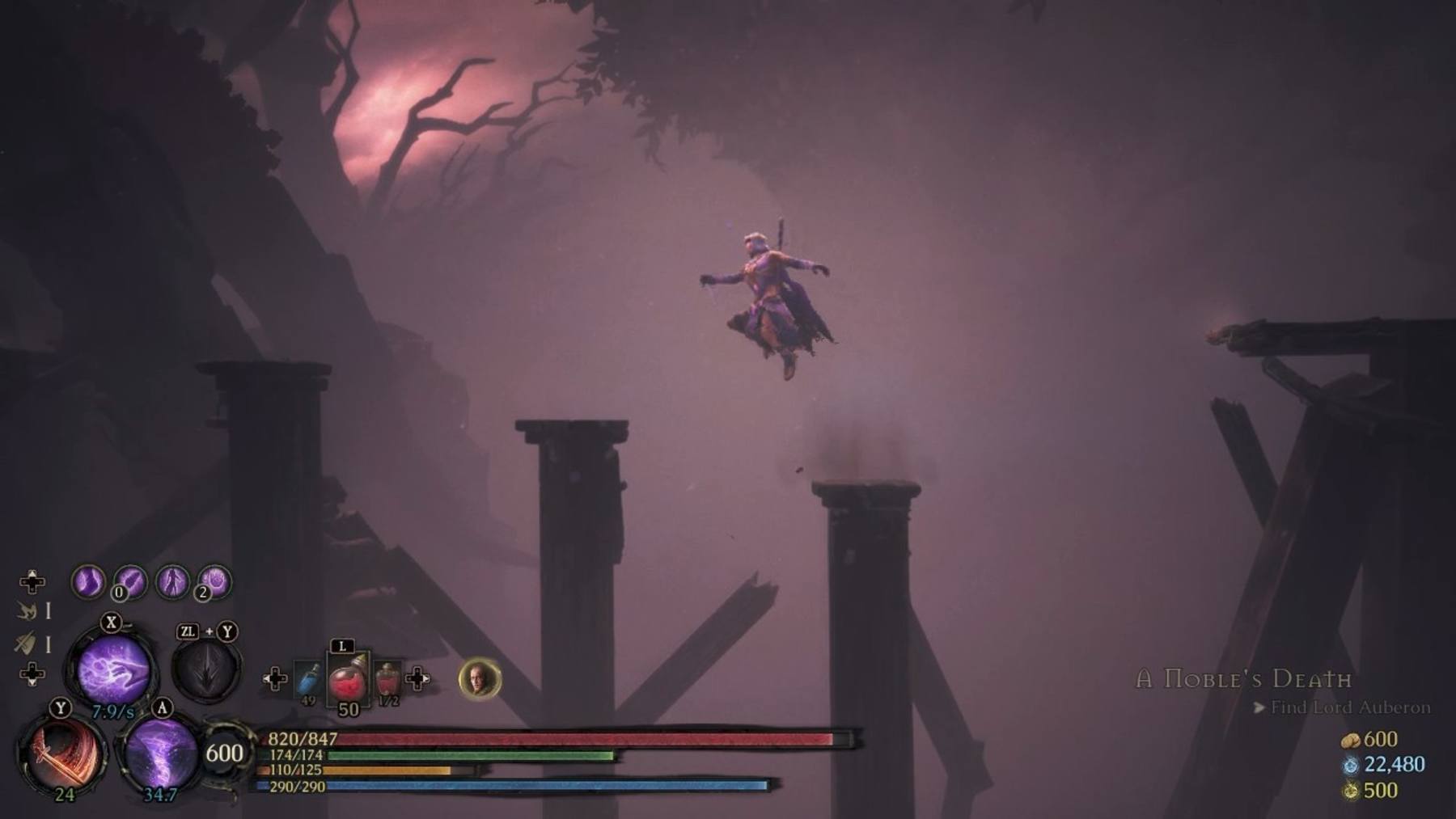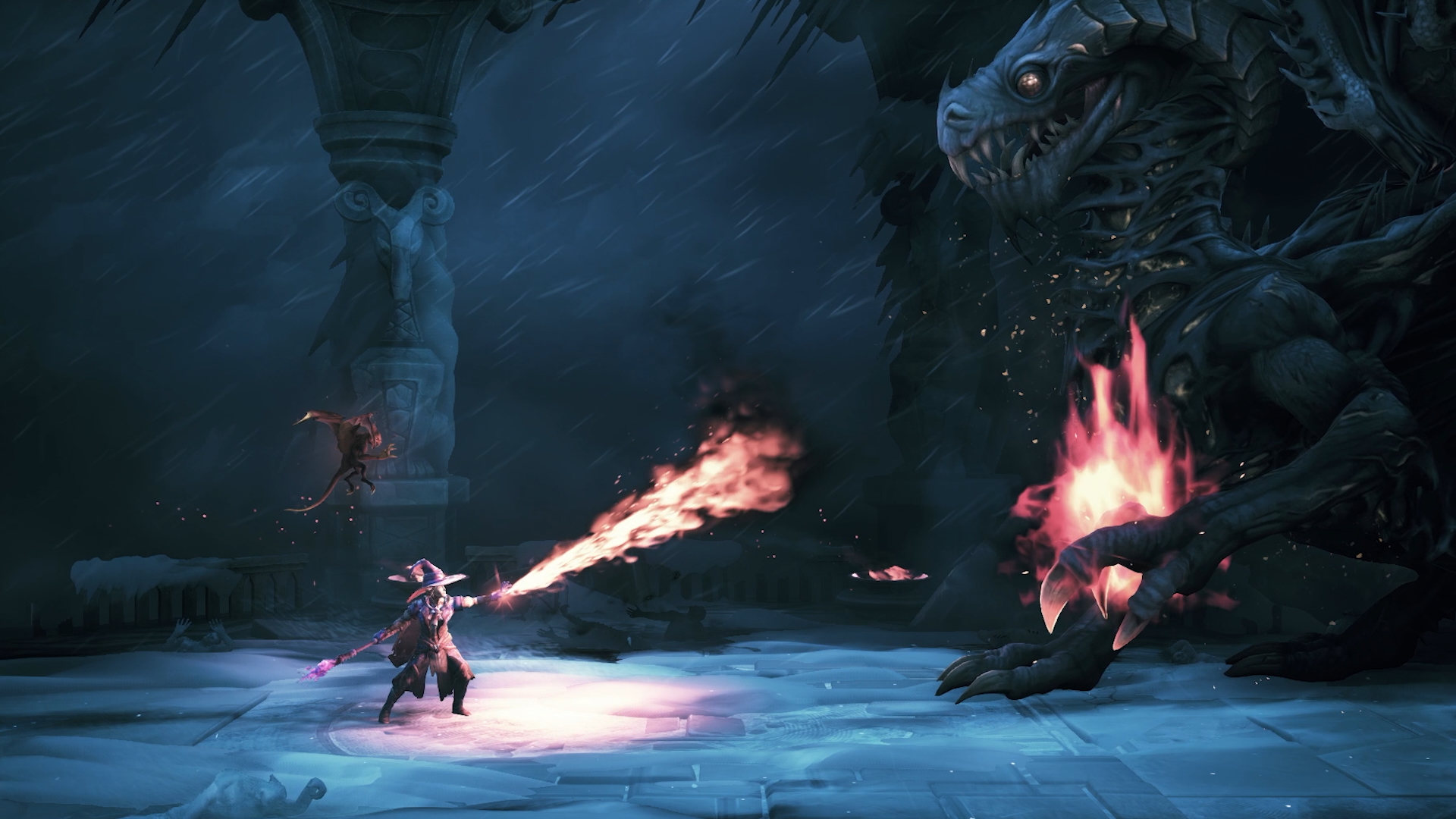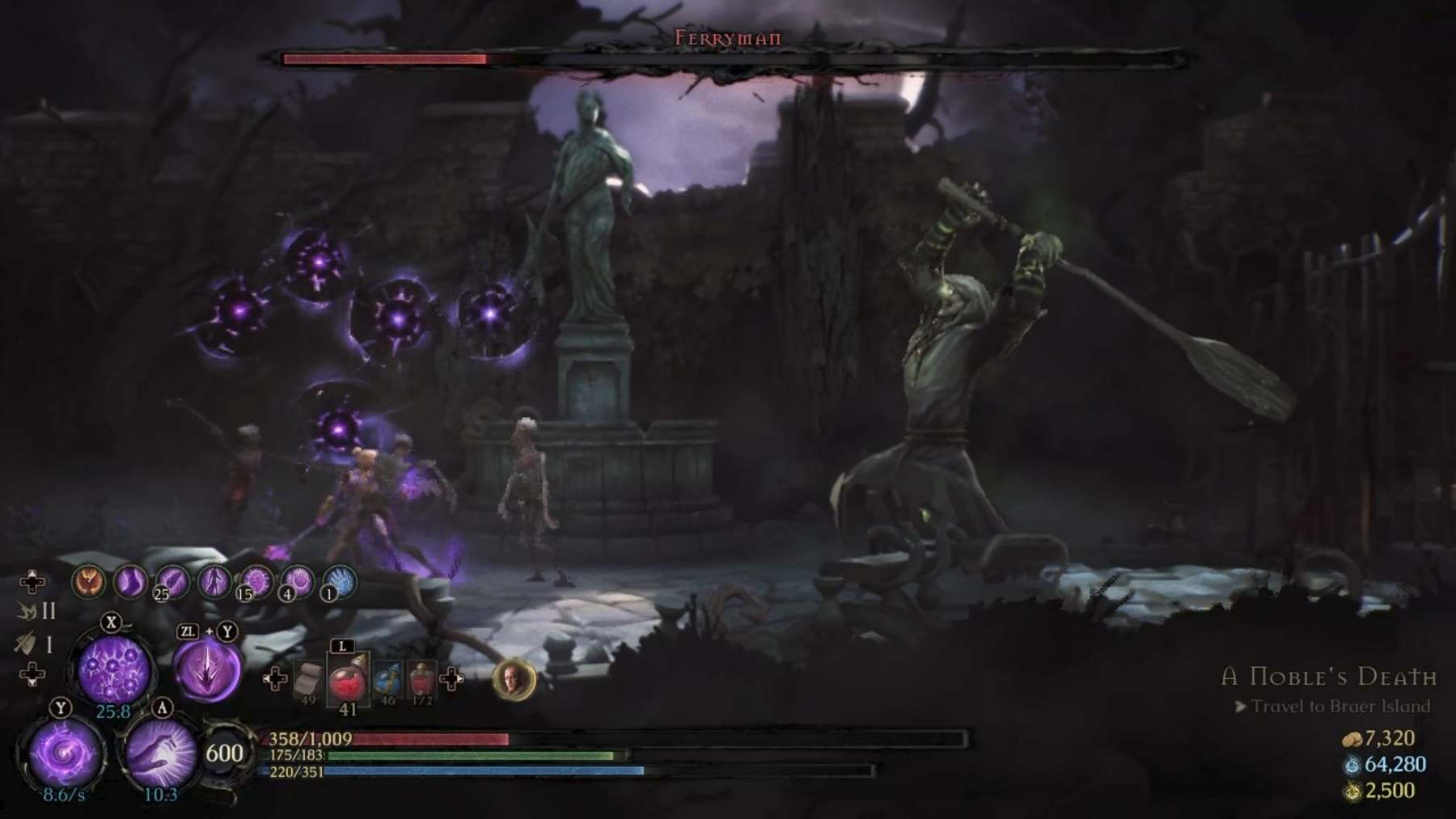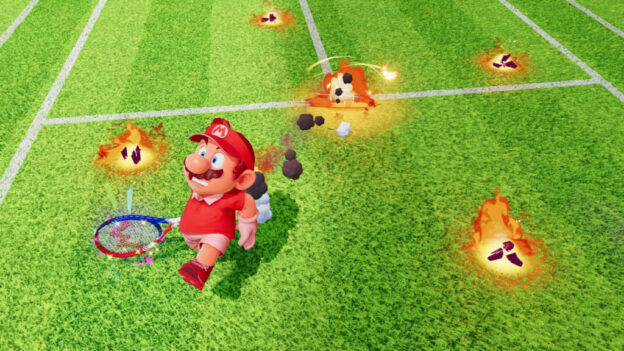Review: Mandragora: Whispers of the Witch Tree (Nintendo Switch)

Mandragora: Whispers of the Witch Tree was released for Switch nearly three months ago, so it’s been wading in our review pool for quite some time. That ended up being to my benefit, as I don’t have to say I overlooked this compelling action RPG.
The game begins with you selecting your character from one of six classes. You’re not given much to go on, but it feels apparent they’re there for replayability. You can also customize your character’s appearance a bit. It’s a quick process, then on to the setup.
You live in Faelduum, a world beset by evil. It’s your job as an inquisitor of the King Priest to eliminate the heretics who would challenge his peacekeeping authority. As he’s publicly torturing a witch, you show mercy and end her suffering. The King Priest isn’t happy about this move, but he needs you, so he sends you out on a mission to capture another heretic. However, you’re not alone; when you killed the witch, something was transferred to you, and that something is now traveling with you.
This is all told through animated stills that do a tremendous job of setting the game’s grim scenario. The artwork is great, and I’m happy to report the voice acting is top-notch, too. I don’t understand why indie developers are so much better at casting/directing English-speaking voice talent than AAA developers.
Anyway, this all sets up the 2D action gameplay. Obviously, your choice of character class comes into play here, but the general focus is on moving forward across Metroidvania-style maps, eliminating numerous enemies along the way. Whether you’re casting powerful spells or relying on your melee weapons, the combat has a somewhat methodical pace to it. There are numerous dodge and parry moves, of course, and they’re easier to execute here than in similar games. Timing is important, but the controls allow you to focus on strategy without worrying about button-mapping memorization.
I started with a tanky melee soldier, and felt the speed of my attacks were a bit slow at first. But I quickly found the rhythm and was able to fight effectively. My problem with 2D action games like this is that survival often seems to depend upon goofy moves and impossible timing. The combat in Mandragora felt a bit more realistic in both control and physics. My attacks felt like they were actually landing on something, and that made combat and level progression more rewarding.
Of course, there are countless ways to customize your character based on the class you chose. It’s overwhelming at the start when you really have no idea what will and won’t work, but it also allows you to get your character behaving as you want once you figure it out.
And you’ll need to, because…
Well, this game is hard, as you’d expect. In many cases, enemies seem placed not to just slow you down, but to make sure you fail. They know how to use the environment to their advantage, too, so even the more basic confrontations can feel like boss battles. Of course, that means the boss battles have to be even tougher, and they are. Thankfully, the game allows you to adjust the difficulty via sliders whenever you choose. If a particular boss is giving you too much trouble, you don’t need to feel bad about using the provided options to lower its health and defense. At least I didn’t. If a game is not giving me nearby checkpoints or decipherable attack patterns—as with the back half of Mandragora—I’m not going to feel guilty for preventing the proceedings from becoming a slog.
In fact, I think easing the difficulty will be the best way for most to play this game because its strengths really are its narrative and world design. The game’s visuals are very impressive (the screen captures don’t accurately capture the vibe), although I did find myself wishing it had been optimized for the Switch 2. The levels build nicely, and although the graphics remain dark and soft throughout, there’s enough variety in the details to keep things interesting. Even better, the soundtrack is amazing. It perfectly matches the grim tone of the visuals and story, providing a cinema-quality experience.
All this said, most of what I liked about the game peaked in the first half. The combat continues to evolve, but the occasional need for backtracking gets tiresome. And it doesn’t help that the difficulty spikes become simply unfair. Even the story, which starts out so strongly, starts to taper off towards the end. Playing the game was like listening to an album with all the bangers on side one.
But it’s still an album worth listening to, if I can extend my metaphor. Mandragora: Whispers of the Witch Tree should certainly appeal to fans of soulslikes. That’s not me, but I enjoy a good story and compelling gameplay, both of which Mandragora provides long enough to see you through.







